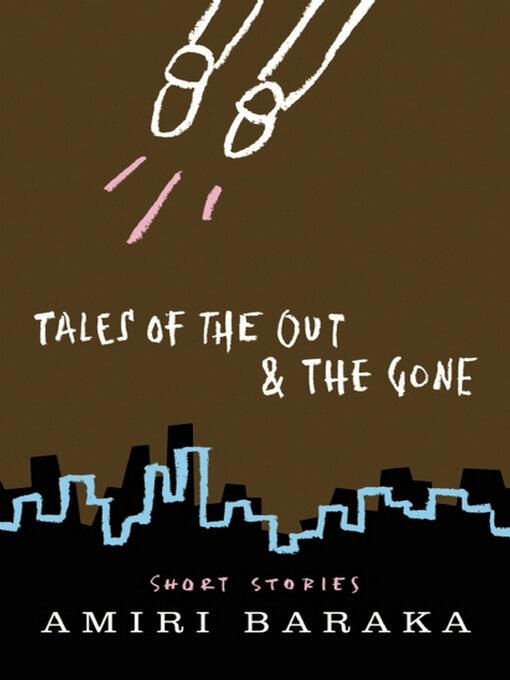Comprising short fiction from the early 1970s to the twenty-first century—most of which has never been published—Tales of the Out & the Gone reflects the astounding evolution of America's most provocative literary anti-hero.
The first section of the book, "War Stories," offers six stories enmeshed in the volatile politics of the 1970s and 1980s. The second section, "Tales of the Out & the Gone," reveals Amiri Baraka's increasing literary adventurousness, combining an unpredictable language play with a passion for abstraction and psychological exploration.
Throughout, Baraka's unique and constantly changing style will enlighten readers on the evolution of one of America's most accomplished literary masters of the past four decades.
-
Creators
-
Publisher
-
Release date
May 26, 2021 -
Formats
-
Kindle Book
- ISBN: 9781617750076
-
OverDrive Read
- ISBN: 9781617750076
-
EPUB ebook
- ISBN: 9781617750076
- File size: 393 KB
-
-
Languages
- English
-
Reviews
-
Publisher's Weekly
September 11, 2006
The same rhetorical bomb throwing that drew attention to Baraka for his poem "Who Blew Up America" shoots through these stories written from 1974 through the present. Baraka works over issues of politics, race, sex and the afterlife, though the focus is always on ideas and wordplay. In "Conrad Loomis and the Clothes Ray," the narrator's friend Conrad reveals his new invention, a "clothes ray" that zaps the illusion of natty clothing onto the body of a naked person. Loomis describes himself as "outtelligent," which is superior to plain intelligence because it represents a brightness focused outward rather than inward. He also explains that while most people can understand problems, he can both "over and understand them." Linguistic ticks and characters like Loomis represent the engaging but intellectually imprecise core of this collection. At their best, these stories stretch language and churn out grimly whimsical notions, but Baraka also misfires, tweaking language into meaninglessness, or, for instance, melding The Matrix
with hoary 9/11 conspiracy theories. -
Library Journal
November 1, 2006
In these daring pieces, Baraka ("Somebody Blew Up America"), former poet laureate of New Jersey and always the provocateur, reflects on the politics of the 1970s and 1980s, makes fun of buppies, and offers many more unusual stories. (See review, p. 71.)Copyright 2006 Library Journal, LLC Used with permission.
-
Booklist
December 1, 2006
In his signature politically piercing and poetic staccato style, Baraka offers a perspective on social and political changes and a fresh view of the possibilities that language presents in exploring human passions. The first part of this collection of short stories focuses on politics of the 1970s and 1980s, when economic prospects were so bleak that muggers were mugging muggers, black mayors replaced white mayors with very little else changing, and revolutionaries were severely compromised. In the second part, Baraka offers pieces from the late 1980s through the current day, again spotting hypocrisy on all fronts and exhibiting the joy of language and self-expression and an abiding appreciation for a well-told tale. Baraka is a keen observer of the outlandish and outrageous in politics and human behavior. Fans and newcomers alike will appreciate Baraka's breadth of political perspective and passion for storytelling.(Reprinted with permission of Booklist, copyright 2006, American Library Association.)
-
Formats
- Kindle Book
- OverDrive Read
- EPUB ebook
Languages
- English
Loading
Why is availability limited?
×Availability can change throughout the month based on the library's budget. You can still place a hold on the title, and your hold will be automatically filled as soon as the title is available again.
The Kindle Book format for this title is not supported on:
×Read-along ebook
×The OverDrive Read format of this ebook has professional narration that plays while you read in your browser. Learn more here.



